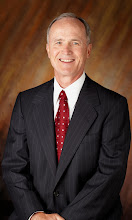Dealing with it - a lesson from Munger and Buffett
The chief criticism leveled at behavioral economics is that this body of knowledge "does not help us." To some the principles of behavioral economics seem unrelated or unstructured, thereby offering no assistance in the world of economics. That may be true on a macroeconomic scale. Behavioral economics as a field of study is new and much more study is needed to apply it to the economy as a whole. But that argument does not refute the legitimacy of the principles that have been discovered, it just says we haven't yet melded them together into a unified theory. True and we may never do so. It may be on a macro level all BE does is supplement or adjust economic theory.
The foregoing, in my view does not apply to micro-economic theory, and by this reference, I mean to restrict my comments to individual financial decisions and the decision making process. Here I am not sure a unified theory is possible given the vast differences individuals possess. That does not mean behavioral economic principles are not useful for those of us that deal with individuals or their financial matters.They are very important. Why? Because although our psychological machinations often help us out in life they almost always cause us to make poor economic decisions including decisions about our investments and portfolios.
I promised you in my November 15, 2009 Observation that I would tell you how I thought you might deal with these frailties. Here is how:
(1) learn what they are,(2) realize that your clients will be subject to them and (3) steer your clients away from them. Its not possible to do that entirely but it is possible to do a pretty good job of it and thereby benefit your clients.
Two guys who have figured this out are Warren Buffett and his partner Charlie Munger. Portions of a magazine article and a speech will help prove my point.
Carol Loomis, the author of an article in the April 1988 edition of Fortune Magazine, entitled "The Inside Story of Warren Buffett," writes:
Last year at a Los Angeles party, Munger's dinner partner turned to him and coolly asked, "Tell me, what one quality most accounts for your enormous success?" Recalling this delicious moment later, Munger said, "Can you imagine such a wonderful question? And so I looked at this marvelous creature -- whom I certainly hope to sit by at every dinner party -- and said, I'm rational. That's the answer. I'm rational.''
The article can be found at:
Mr. Munger knows all about human psychological frailty when it comes to finance, in fact he gave a speech about it at his law school Alma mater. I reproduce part of the transcript of that speech:
THE PSYCHOLOGY OF HUMAN MISJUDGMENT
By Charlie Munger (Warren Buffett's partner at Berkshire Hathaway)
From a Speech at Harvard Law School (1995)
From a Speech at Harvard Law School (1995)
[The moderator of the program introduced the subject of Mr. Munger's talk and after being introduced Mr. Munger began:]
When I saw this patterned irrationality, which was so extreme, and I had no theory or anything to deal with it, but I could see that it was extreme, and I could see that it was patterned, I just started to create my own system of psychology, partly by casual reading, but largely from personal experience, and I used that pattern to help me get through life. Fairly late in life I stumbled into this book, Influence, by a psychologist named Bob Cialdini, who became a super-tenured hotshot on a 2,000-person faculty at a very young age. And he wrote this book, which has now sold 300-odd thousand copies, which is remarkable for somebody. Well, it's an academic book aimed at a popular audience that filled in a lot of holes in my crude system. In those holes it filled in, I thought I had a system that was a good-working tool, and I'd like to share that one with you.
And I came here because behavioral economics. How could economics not be behavioral? If it isn't behavioral, what the hell is it? And I think it's fairly clear that all reality has to respect all other reality. If you come to inconsistencies, they have to be resolved, and so if there's anything valid in psychology, economics has to recognize it, and vice versa. So I think the people that are working on this fringe between economics and psychology are absolutely right to be there, and I think there's been plenty wrong over the years. Well let me romp through as much of this list as I have time to get through:
The link to a transcript of the original speech is:
Mr. Munger revised and edited the transcript of his original 1995 speech in 2005. The revision, he dubbed the "long talk," can be found at:
In his long talk Mr. Munger describes and illustrates over twenty human mental frailties. Two he identified are:
Doubt-Avoidance Tendency
The brain of man is programmed with a tendency to
quickly remove doubt by reaching some decision. It is
easy to see how evolution would make animals, over the
eons, drift toward such quick elimination of doubt. After
all, the one thing that is surely counterproductive for
a prey animal that is threatened by a predator is to take a
long time in deciding what to do. And so man’s Doubt
Avoidance Tendency is quite consistent with the history
of his ancient, nonhuman ancestors.
at page 9
Inconsistency-Avoidance Tendency
The brain of man conserves programming space by being
reluctant to change, which is a form of inconsistency
avoidance. And so, people tend to accumulate large mental
holdings of fixed conclusions and attitudes that are not
often reexamined or changed, even though there is
plenty of good evidence that they are wrong.
at page 10
Recognize that these frailties exist, learn what they are and steer yourself and your clients away from them. That is in essence what Buffet and Munger did first with their hedge funds and now with Berkshire Hathaway. That is how you and your clients can "be rational." I am not suggesting that you mimic Buffet and Mungers' style of investing just that you mimic their acknowledgement of behavioral economic principles and their dogged determination to avoid the traps these principles describe.
So, maybe Spock is not such a bad guy after all. Can you imagine what McCoy's investment portfolio looks like? Live long and prosper probably doesn't describe it.
While I was an in-house counsel I distributed Observations which discussed principles of behavioral economics. I will revisit these principles in some of my future Observations.




